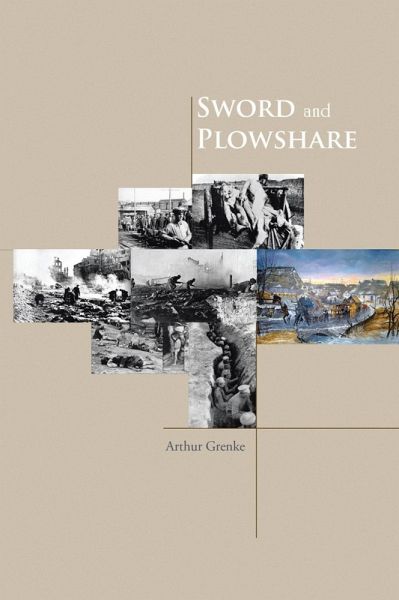
Sword and Plowshare (eBook, ePUB)
Versandkostenfrei!
Sofort per Download lieferbar
2,99 €
inkl. MwSt.
Weitere Ausgaben:

PAYBACK Punkte
1 °P sammeln!
My general impression is best expressed by stating how I was struck by the intensity of this report on the most difficult years in the history of mankind. Stories I heard of and I knew of all my childhood, which I seemed to have forgotten or which were pushed away in my memory, came to life once again.There are magnificent descriptions of nature and discreet observations of human feelings The colorful language does a lot to make the horrors which have to be reported bearable.Renata Kartsaklis, Ph.D., Librarian, Dalhousie UniversityDepicting the tragic Russian era from the First World War and t...
My general impression is best expressed by stating how I was struck by the intensity of this report on the most difficult years in the history of mankind. Stories I heard of and I knew of all my childhood, which I seemed to have forgotten or which were pushed away in my memory, came to life once again.
There are magnificent descriptions of nature and discreet observations of human feelings The colorful language does a lot to make the horrors which have to be reported bearable.
Renata Kartsaklis, Ph.D., Librarian, Dalhousie University
Depicting the tragic Russian era from the First World War and the Bolshevik Revolution, through to the man-made Ukrainian famine of the thirties and World War Two, Sword and Plowshare is a powerful historical novel that dramatically portrays the emotional intensity of its victimized German-Russian characters. The realism of the story combines a command of authentic details and a profusion of metaphorical style not always found in historical novels. The war scenes are gripping and the lengthy section on the horrendous famine is shocking in its realistic portrayal. The novels narrative tension never wavers, but the bleak historical events are not allowed to overpower or to make irrelevant the all-too-human feelings of fear, despair, hatred, hope and love expressed by these German-Russian victims who finally flee to war-torn Germany, only to face further threats to their lives. This is a novel that will relentlessly grip the reader.
Al Reimer Professor Emeritus, Dept. of English, University of Winnipeg
There are magnificent descriptions of nature and discreet observations of human feelings The colorful language does a lot to make the horrors which have to be reported bearable.
Renata Kartsaklis, Ph.D., Librarian, Dalhousie University
Depicting the tragic Russian era from the First World War and the Bolshevik Revolution, through to the man-made Ukrainian famine of the thirties and World War Two, Sword and Plowshare is a powerful historical novel that dramatically portrays the emotional intensity of its victimized German-Russian characters. The realism of the story combines a command of authentic details and a profusion of metaphorical style not always found in historical novels. The war scenes are gripping and the lengthy section on the horrendous famine is shocking in its realistic portrayal. The novels narrative tension never wavers, but the bleak historical events are not allowed to overpower or to make irrelevant the all-too-human feelings of fear, despair, hatred, hope and love expressed by these German-Russian victims who finally flee to war-torn Germany, only to face further threats to their lives. This is a novel that will relentlessly grip the reader.
Al Reimer Professor Emeritus, Dept. of English, University of Winnipeg
Dieser Download kann aus rechtlichen Gründen nur mit Rechnungsadresse in A, D ausgeliefert werden.













